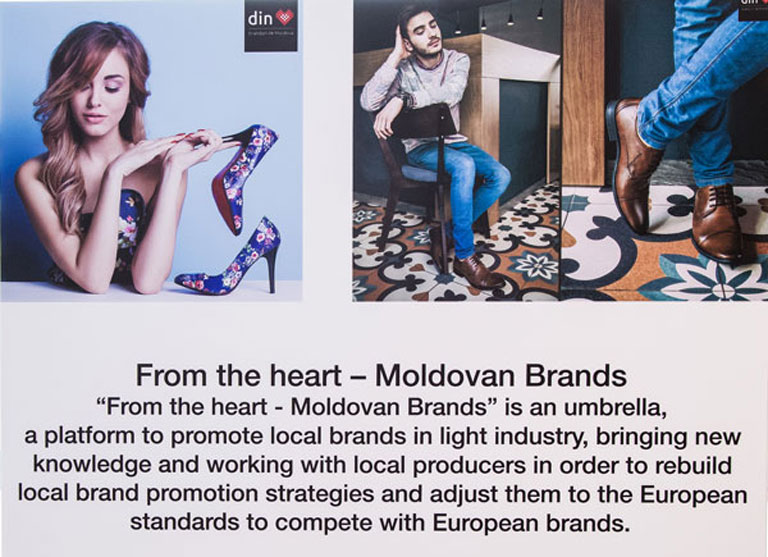Branding Moldova: Famed Local Fashion Producers Use IP to Tap Into Global Industry
April 12, 2016
By JONAH aSHER
London, Milan, New York, and Paris: Around the calendar, the world’s fashion-forward gather in global centers to survey the latest sartorial trends. Toiling far from these catwalks, however, creators in the Republic of Moldova are using intellectual property (IP) tools to tap into the global demand for fashion.
The country boasts a long history of producing textiles, apparel, footwear, and leather goods. This, combined with a skilled workforce, location between Eastern and Western Europe, and membership in important free trade agreements makes it an important fashion-manufacturing center. It also offers attractive pricing, high quality products, short lead times, and close ties to the labor force that have fostered the growth of this international commercial textile hub, according to Invest in Moldova.

However, more than 90% of Moldovan companies in fashion-related industries create products under what are known as lohn contracts, essentially making unbranded products to be sold under overseas labels, according to Cluster Policies in Europe. This gap between local production and sales of an overseas-branded product represents lost earnings for Moldovans.
Addressing this, industry groups and the Government of Moldova, with the support of the United States Agency for International Development (USAID), launched in 2012 an umbrella brand to help the country’s fashion-related companies better market their products, both externally and at home. The brand: Din Inimă - Brandurie de Moldova (From the Heart - Brands of Moldova).

“A strong brand adds a series of intangible benefits to a product that increase its value and we work hard to educate Moldovan entrepreneurs on the importance of protecting their creations,” Diana Stici of the legal department of Moldova’s State Agency on Intellectual Property said in an interview.
“IP helps brands achieve distinctiveness for the goods and services under which they are marketed, and registered IP rights enrich a company’s image and heritage,” Ms. Stici said.
The Din Inimă umbrella brand aims to add value to Moldovan fashion products by increasing producers’ competitiveness, providing training on the effective use of IP, developing consumer-oriented promotional programs, and improving consumer perception and knowledge of local brands, according to USAID.
“Brands bring to the holder a considerable competitive advantage, and Moldovan companies must understand that creating powerful brands means diminishing risk and obtaining higher profits,” added Ms. Stici.
A case study on the Moldovan program was presented at the WIPO International Conference on Intellectual Property and Development, held at WIPO headquarters in Geneva April 7 and 8, 2016.
The Din Inimă program has made a lasting contribution to Moldova’s fashion-related industry in a short time. By the end of 2015, some 70 new fashion labels had been launched, representing approximately 20% of the industry, most of which are run by women entrepreneurs, according to USAID. In 2012, over 60 participating fashion labels joined together to launch a store selling exclusively Din Inimă brands, which expanded across the capital of Chisinau and into other regions, says USAID.
So far, more than four dozen Din Inimă participating companies have acquired at least one registered national trademark, making for a total of nearly 150 registrations, according to government figures. Seven of these companies have also utilized the WIPO-administered Madrid system for international trademark registration. They include Zorile, which has registrations for its GAMP and SNOLKY brands.
Brands under the Din Inimă umbrella enjoyed a 34% increase in sales from 2012 to 2015, government figures show. They also brought in US$7.4 million in new sales during this period from the domestic market for a growth rate of 34% and the share of lohn products in the industry has decreased by 15% since 2004, according to a 2015 study by Chemonics.
For one business owner, these changes are personal. Silvia Lazu, founder of the Bombonici brand, says: “Our trademark conveys our dedication to our customers and belief that we do not have clients, but only friends.”